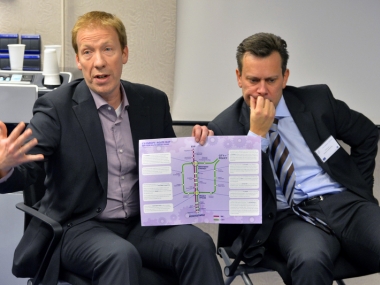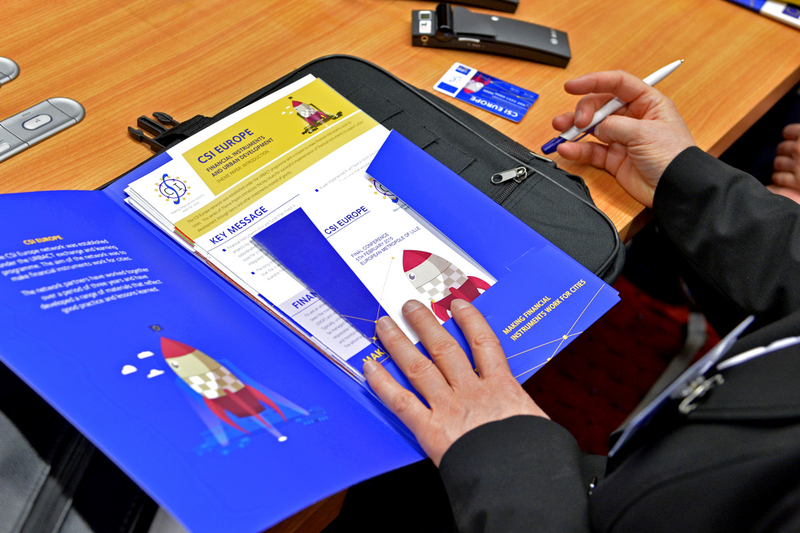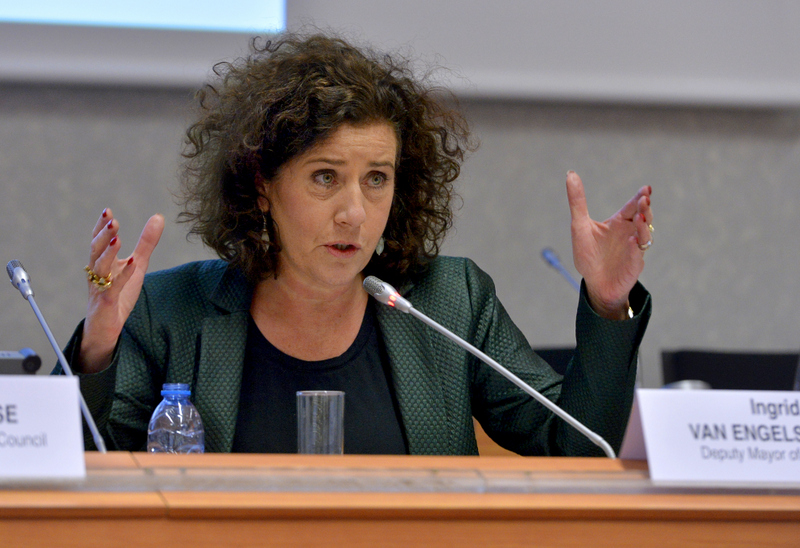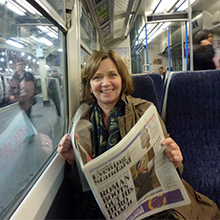Smart investments for cities The URBACT CSI Europe network shares its learning on financial instruments
Edited on
09 October 2017In February the URBACT CSI Europe network presented its findings at a conference hosted by European Metropole of Lille. Partner cities showcased examples of how the new generation of financial instruments can be an efficient form of public-private partnership to support urban investment in infrastructure, education, research and innovation, energy, buildings and regeneration. In a period of austerity financial instruments have made projects happen that would not have happened otherwise. The added benefit is that the funds are recycled, and can continue to be re-invested long after the original projects.

The CSI Europe network final policy papers and film, launched during the conference, encourage other cities to follow this model of investment, but also pass on some of the lessons learnt. They explain in simple terms what financial instruments are and how cities can make use of them. The materials are all available online here.
During the event a number of key messages were passed on to other cities considering the use of Financial Instruments.
Small steps are a good way to start
An investment in a triple solar roof for a community football club in The Hague, documented by film, was a good example of a how to get started with a small investment. It demonstrated proof of concept and generated the interest and enthusiasm required in order to scale up. There is no avoiding the fact that financial instruments can be complex tools. This experience allowed the city to master the complexity with small scale projects, and build a foundation for further investments.
Develop a pipeline of city led investments
Investment projects need to be demand-led based on the city's existing strategy. Developing a pipeline of projects focussed on identified city needs should take place at the same time as setting up a fund, in order to be ready to go as soon as the fund opens.
Don't be afraid of state aid!
Although the regulatory framework for financial instruments may seem overwhelming to get to grips with, it is not as scary as it seems. The CSI Europe Policy Papers outline the four possible routes for all investments. One of them will be right for your city.
Skilling up for a new world of finance
Financial instruments bring together the different worlds of banks and financial institutions on the one hand, and local government on the other. Civil servants have to learn a whole new set of skills to understand, engage and negotiate, to persuade banks to get involved. This involves a new approach, moving from grants to loans and a focus on results not costs. It is a different way of thinking and cities need to skill up urban professionals to manage these portfolios.
Sharing expertise
 Platforms are needed to share expertise and advice at regional, national and EU level. A new platform managed by the European Investment Bank, FI compass, will do just that, and give templates and examples for different types of funds.
Platforms are needed to share expertise and advice at regional, national and EU level. A new platform managed by the European Investment Bank, FI compass, will do just that, and give templates and examples for different types of funds.
URBACT added value
URBACT partners felt that a key benefit of CSI Europe network participation had been to broaden understanding of new types of investment funds through conversations with others. Also of value was the opportunity to reflect in the Local Support Group, to engage with the Managing Authority and private sector partners in a neutral way without being project specific. The city’s role had been that of convenor, generating the projects and leading the partnerships.
Investment tools for Europe 2020
In concluding Ingrid van Engelshoven, Deputy Mayor of The Hague explained why they had got involved in the URBACT network: “We wanted to be ready on this issue and to have more money to invest. It’s not easy. The governance is complex. What’s important in all this is not to forget that these are projects that make our cities better and more sustainable, in line with the Europe 2020 goals. It is not about making profit for the city and it's important to communicate that”
explained why they had got involved in the URBACT network: “We wanted to be ready on this issue and to have more money to invest. It’s not easy. The governance is complex. What’s important in all this is not to forget that these are projects that make our cities better and more sustainable, in line with the Europe 2020 goals. It is not about making profit for the city and it's important to communicate that”
Thomas de Béthune of the European Commission reinforced that there are plans to double the use of financial instruments in the next programme period. This is stressed in the Juncker Europe Investment Plan. Finally Frank Lee of the European Investment Bank appealed to the cities present. “These funds belong to you, to be used on the ground, not locked up in holding accounts. Make use of the CSI experience and FI Compass to get started on investments for your city”
Des Gardner, Lead Expert and Mark Duncan of Lead Partner Manchester City Council will hold a masterclass on financial engineering at the URBACT City Festival.
 Submitted by Sally Kneeshaw on
Submitted by Sally Kneeshaw on




